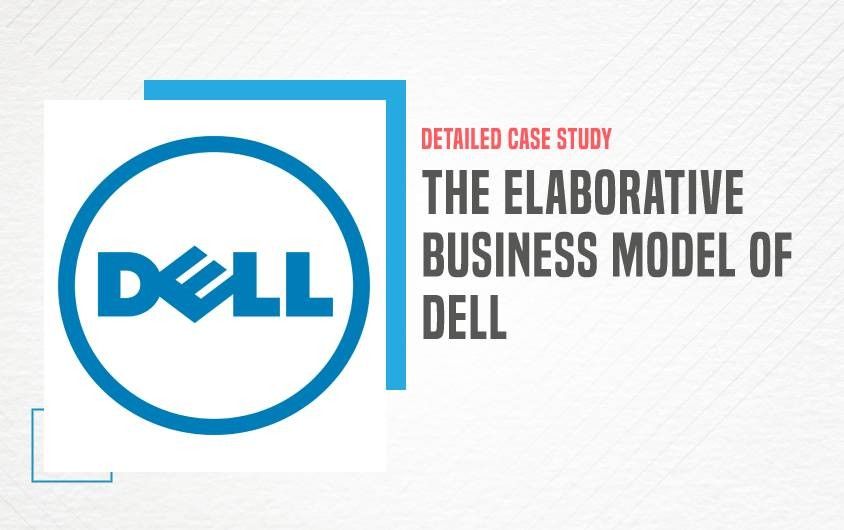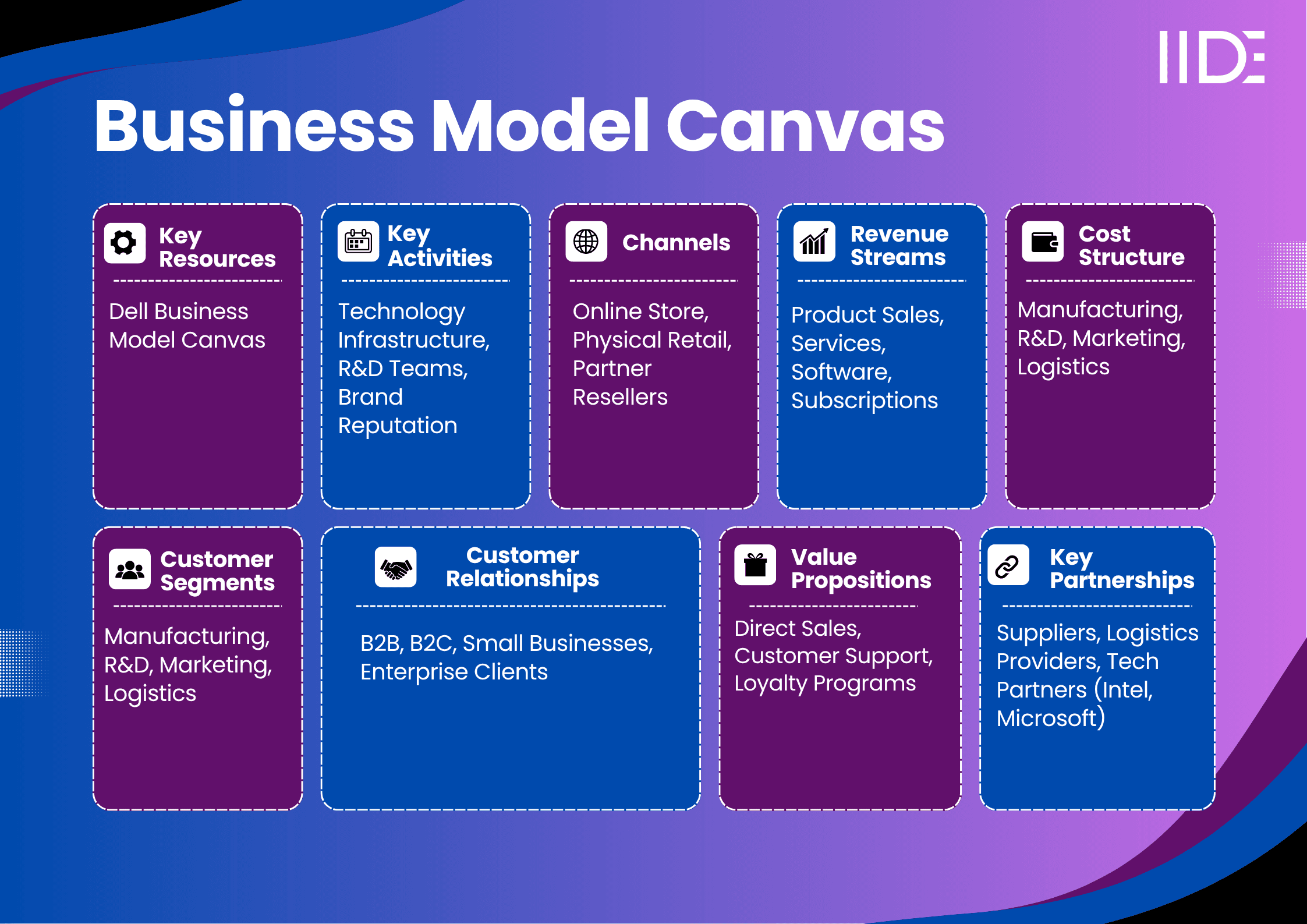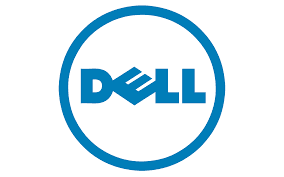
Updated on Dec 11, 2025
Share on:
Dell’s business model focuses on providing innovative technology solutions through its diverse range of computers, hardware, software, and IT services. By leveraging its global supply chain and direct-to-customer approach, it maintains a competitive edge in the tech market, driving strong profitability and customer loyalty. Dell combines product sales and services to build a sustainable and scalable business.
About Dell
Dell Technologies, founded by Michael Dell in 1984, has grown into one of the world’s largest technology companies, offering a wide range of products, including laptops, desktops, servers, storage solutions, and IT services. Dell's key selling point is its direct-to-customer sales model, allowing it to offer highly customizable products tailored to individual needs.
As of 2023, Dell reported annual revenue of $102 billion, operating in over 180 countries and employing over 165,000 people worldwide. It is known for its focus on customer-centric innovation and providing scalable technology solutions for businesses of all sizes.
Dell believes in empowering customers through technology, focusing on sustainability and reducing its carbon footprint. Customers experience top-notch support, cutting-edge products, and a personalised approach.
| Feature | Details |
|---|---|
| Founded | 1984 |
| Founder | Michael Dell |
| Headquarters | Round Rock, Texas, USA |
| Industry | Technology & IT Solutions |
| Revenue (2023) | $102 billion |
| Presence | Global (over 180 countries) |
| Employees | 165,000+ |
| Popular for | Laptops, Servers, IT Services |


Learn Digital Marketing for FREE


How does Dell make money?
1. Revenue Stream Breakdown:
- Product Sales: Dell generates the majority of its revenue from product sales, including laptops, desktops, and IT hardware
- Services: Revenue also comes from its enterprise solutions, cloud services, consulting, and support services
- Software & Licensing: Dell earns from software sales and licensing for its technology platforms
2. Revenue Contribution:
Product sales contribute around 65% of revenue, while services account for 30%, and software licensing makes up the remaining 5%.
3. Pricing Strategy:
Value-Based Pricing: Dell uses value-based pricing for its premium product lines, especially in enterprise solutions and custom configurations, while offering competitive pricing for consumer-focused products.
Dell Business Model Canvas

Dell Value Proposition
Dell’s value proposition lies in its ability to provide innovative, customizable technology solutions tailored to a diverse set of customers, from individual consumers to large enterprises. Unlike competitors, Dell offers a direct-to-consumer sales model, allowing customers to choose from a wide range of custom configurations. Dell also focuses on high-performance products and services that address critical business needs, offering comprehensive IT support and cutting-edge cloud solutions. The company’s commitment to sustainability further strengthens its market appeal, offering eco-friendly products that help customers reduce their carbon footprint.
The SWOT analysis of Acer offers a parallel view into the tech hardware sector, highlighting challenges and strengths that align closely with Dell’s market dynamics.
Dell Cost Structure
Dell’s major expenses include manufacturing, logistics, R&D, and marketing. The company saves costs by outsourcing components, leveraging automation in production, and using economies of scale. Despite high manufacturing costs, Dell maintains healthy margins by optimising its supply chain and focusing on high-value products and services.
Dell Customer Segment
Dell targets a wide range of customers, including both B2B and B2C segments. Its B2B clientele includes large enterprises, government agencies, and small to medium businesses that require scalable IT solutions and services. Dell also appeals to individual consumers looking for high-performance laptops, desktops, and custom-built products. The brand’s primary users are tech-savvy, business-oriented, and eco-conscious customers.
Dell Distribution Channels
Dell operates through multiple distribution channels, including its direct-to-consumer online store, physical retail stores, and partner resellers. The company uses an omnichannel approach, integrating both online and offline touchpoints to ensure seamless customer experiences. Dell also leverages third-party platforms like Amazon for a broader reach.
Dell Key Partnerships
Dell partners with key suppliers such as Intel, Microsoft, and other hardware and software companies to deliver high-performance products. It also collaborates with logistics providers for efficient distribution and with tech partners to advance its IT solutions and cloud services. These partnerships enhance Dell’s ability to deliver cutting-edge products and services to a global audience.
SWOT Analysis of Dell
| Strengths | Weaknesses | Opportunities | Threats |
|---|---|---|---|
| Innovation | High Operating Costs | Growing Cloud Market | Intense Competition |
| Customization | Dependency on Third-Party Suppliers | Expanding AI Market | Economic Recession |
| Brand Loyalty | Market Saturation | New Product Categories | Global Supply Chain Risks |
Dell Competitor Comparison
| Parameter | HP | Lenovo | Apple |
|---|---|---|---|
| Pricing | Mid-range to Premium | Budget to Premium | Premium |
| Customer Experience | Customizable Options | Enterprise Solutions | Premium Design & UX |
| Channel Strategy | Direct & Retail | Online & Resellers | Online & Physical |
| Market Focus | B2B & B2C | B2B & B2C | Primarily B2C |
| Innovation | Focus on Innovation | Competitive Pricing | Cutting-edge Design |
SWOT analysis of Asus provides another angle on strategic positioning in the global computer industry, offering insights comparable to Dell’s operations.
Want to Know Why 2,50,000+ Students Trust Us?
Dive into the numbers that make us the #1 choice for career success

MBA - Level
Best For
Fresh Graduates
Mode of Learning
On Campus (Mumbai & Delhi)
Starts from
Mar 2, 2026
Duration
11 Months
Live & Online
Best For
Working Professionals
Mode of Learning
Online
Starts from
Mar 6, 2026
Duration
4-6 Months

Online
Best For
AI Enthusiasts
Mode of Learning
Online
Duration
5 Months

Offline
Best For
12th Passouts
Mode of Learning
On Campus (Mumbai)
Duration
3 Years
Recent Post
Dell employs a competitive pricing strategy, leveraging its direct sales model to offer cost savings to customers.
Dell shifted from a purely direct-to-consumer model to include a robust online presence and diversified product offerings.
Product sales, services, and long-term service contracts are major revenue streams for Dell.
HP, Lenovo, Apple, Acer, and Asus are Dell’s main competitors.
Dell is known for innovations in AI, cloud computing, and IoT.
Dell focuses on sustainability, recycling programs, and supporting education through the Dell Foundation.
Dell uses direct engagement, digital marketing, and influencer partnerships to reach a broad audience.
Strategic alliances with companies like Microsoft and Intel enhance Dell’s product offerings and market reach.
Aditya Shastri leads the Business Development segment at IIDE and is a seasoned Content Marketing expert. With over a decade of experience, Aditya has trained more than 20,000 students and professionals in digital marketing, collaborating with prestigious institutions and corporations such as Jet Airways, Godrej Professionals, Pfizer, Mahindra Group, Publicis Worldwide, and many others. His ability to simplify complex marketing concepts, combined with his engaging teaching style, has earned him widespread admiration from students and professionals alike.
Aditya has spearheaded IIDE’s B2B growth, forging partnerships with over 40 higher education institutions across India to upskill students in digital marketing and business skills. As a visiting faculty member at top institutions like IIT Bhilai, Mithibai College, Amity University, and SRCC, he continues to influence the next generation of marketers.
Apart from his marketing expertise, Aditya is also a spiritual speaker, often traveling internationally to share insights on spirituality. His unique blend of digital marketing proficiency and spiritual wisdom makes him a highly respected figure in both fields.
